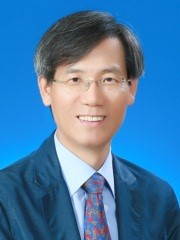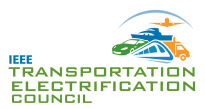October 2013
By Lixin Ren
A future sustainable aircraft that promises to be greener, quieter, smarter and more affordable has inspired many innovative engineering solutions to be developed in the aerospace sector. The most notable trends are the recent developments towards the “More Electric Aircraft” (MEA) and “More Electric Engine” (MEE). It was projected that a full “transition to an all-electric aircraft may still be many years in the future, but aircraft engineer have made breakthroughs which combine electrical and hydraulic power and systems that assist in producing thrust thus the evolutionary ‘more electric aircraft’ (MEA) and ‘more electric engine’(MEE) ” concepts have evolved [1].
by Brewster McCracken, President and CEO, Pecan Street Research Institute
A consumer device that draws over 3,000 Watts for several hours a day doesn’t come along often. Before 2011, there were just six such devices: AC compressors, pool pumps, electric versions of clothes dryers, ovens, space heaters and water heaters. To put these devices in context, large homes with gas appliances in areas with temperate climates can go months without drawing more than 2,000 Watts for the entire home (Figure 1). That’s why utility planners reasonably want to understand the possible impacts of new >3,000 Watt devices — before they become a problem.
By Ken Brown
Safety is the primary concern in the development of Electric Vehicle Supply Equipment (EVSE). The key safety circuit within an EVSE is the Charge Circuit Interrupting Device (CCID). The CCID is a personnel protection system for EVSEs that reduces the risk of electric shock.
By Kaushik Rajashekara, Fellow IEEE, Department of Electrical Engineering, The University of Texas at Dallas, Richardson, TX
Electric vehicles (EV) have been around since late 1800’s. However, in the past, EV development activities were discontinued because of low cost of gasoline and advancement of internal combustion engines. In the last decade, Electric vehicles (EV) and Plug-in Hybrid Electric Vehicles (PHEV) are gaining increasing interest in North America and in other countries due to rising fuel prices, concern for the environment and the sustainability of fossil fuel based transportation.
About the Newsletter
Editors-in-Chief

Jin-Woo Ahn
Co-Editor-in-Chief

Sheldon Williamson
Co-Editor-in-Chief
TEC Call for Articles 2023 - Advances in Charging Systems
The TEC eNewsletter is now being indexed by Google Scholar and peer-reviewed articles are being submitted to IEEE Xplore.
To submit an article click here.


